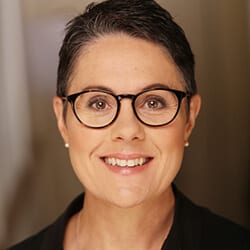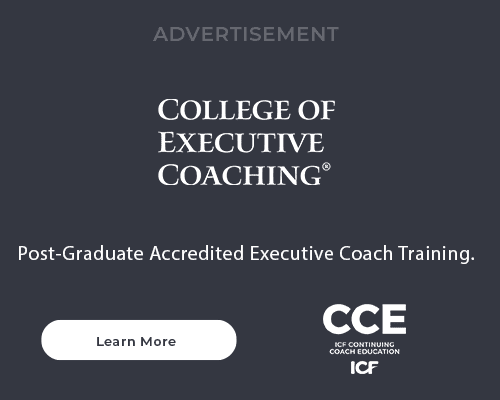Opportunity is Now Here!
Welcome to a new year!
As coaches, we know very well that our mindset is key to how we engage with and experience our life. Our attitude deeply informs how we feel, the decisions and choices we make and what we do. We have also known for a long time that a positive mindset is conducive to a better outcome; however, what else can we do to really leverage the best out of this year to come? What can we do to make sure that “opportunity is now-here” and that we don’t find ourselves thinking that “opportunity is no-where” because we have allowed our changing environment to get the better of us?
For the last couple of years, I have been quite fascinated by what “futurists” have been telling us about the world, how it is changing (rapidly) and how that might affect us and our environment. We hear that we are in a state of “VUCA” (volatile, uncertain, complex and ambiguous), and this concept is often positioned as something negative or threatening to us and yet, does it have to be? What if those conditions actually offered us a fantastic opportunity to really grow and develop beyond what we thought possible!?
When we are coaching, part of our skill set is to be OK with not knowing everything about our client’s content or process, and we learn to trust the process of coaching, trust our client and trust ourselves. So, how far can we take that idea of being OK with not knowing when it comes to ourselves and our own lives? How well could we learn to handle things that are more volatile, uncertain, complex and ambiguous than perhaps they have ever been before?
During the ICF Converge keynote session last August, Hal Gregersen, executive director of the MIT Leadership Center, said: “If we don’t find the surprises, they will find us.” He challenged the audience to consider when they last felt uncomfortable or were completely wrong about something. His perspectives aligned with what I have been reading and hearing, which is that to really reap innovative and groundbreaking benefits, we have to build that muscle for being OK with our own disruption, to be able to invite ourselves to stretch further beyond our own comfort zone so that we can truly reach out to the growth space that awaits us.
We need to adopt a mindset that can embrace or even invite disruption. We need to focus more on what is possible and less on what is predictable. This isn’t necessarily a natural shift for our brains to make and may therefore create discomfort and disruption of its own, so we need to develop new habits and ways of thinking and focusing. As Carol Dweck describes in her book Mindset, we need to develop a growth vs a fixed mindset.
In order to nurture that mindset and help us to experience disruption and VUCA as positive and opportunistic, here are six habits that we can focus on:
- Step back: “Follow effective action with quiet reflection. From the quiet reflection, will come even more effective action” -Peter Drucker
- Ask questions: “The art and science of asking questions is the source of all knowledge” -Thomas Berger
- Gain perspective: “In terms of doing work and in terms of learning and evolving as a person, you just grow more when you get more people’s perspectives” -Mark Zuckerberg
- Take a systems view: The ICF envisions that “coaching is an integral part of a thriving society,” which embraces multiple and varied systems that each coaching conversation can impact.
- Experiment: “The true method of knowledge is experiment,” -William Blake and “It’s not an experiment if you know it’s going to work” -Jeff Bezos
- Connect: “Communication—the human connection—is the key to personal and career success” -Paul Meyer
As I step into my role as Global Chair of the ICF for 2018, I feel really inspired and focused on seeking to hold a growth mindset to embrace the opportunities that our changing environment offers and to prepare and ready myself for what could be groundbreaking outcomes. As the largest professional body of coaching in the world, we are at the very forefront of what our profession can do, become and offer to the world. What do you read when you see: “opportunityisnowhere”? I invite you to join me in taking time to further build these habits and approaches. What I’d really love for 2018 is for ICF not just to cope with a VUCA environment, but to truly surf its wave for who knows what amazing impact we might have for ourselves and others and the world at large. By stepping into this role, I am committing myself to that quest—and I’d be delighted for you to join me!
I wish for you all a most inspiring and successful year ahead.




Great perspective, Tracy. Please hold that focus for yourself and the Global Board.
In my leadership training, we talk about the difference between embracing vs enjoying change. Do you cope or are you excited by the mystery? I love how this applies to coaching, and everything else in life, too. Thank you!
Thanks Marcia! I love that idea of being excited by the mystery – what a different experience to change that can bring!
Tracy, your blog is so timely and so wise. We are just completing a cohort of coaching students from our ACTP program. Today’s conversation was all around VUCA, and our duty and moral obligation to embrace and celebrate the elements of volatility, complexity, uncertainty, and ambiguity. As we honor these core concerns that our clients bring to us, we are better able to help them transform from fearful to meaningful action. Thanks for sharing your thoughts.
Thanks Micki, and how better to honor our clients’ concerns than to be able to role model them ourselves as coaches!? How wonderful to hear that this is being discussed in your coach training programme.
Great pointers those six habits you propose all of us to focus on. I just made them part of my book of key notes.
Thanks Umberto, I’m glad you like the habits and wish you an exciting and creative year 🙂
Thanks Ed, I and we will most certainly aim to hold that focus 🙂
Great statement of intent Tracy and a purposeful space for all to join . Here’s to a New kind of year for our focus and attention.
Thanks John, its great to hear such positive responses to this message and with all of us behind the intention we can make even greater things happen!
Tracy, thanks for the insight. Now I am able to reflect on it 🙂 and do something with it. I like the 6 habits.
Thanks Nicole, I’m glad you like the 6 habits and welcome your and other’s insights!
Timely reminder to reflect on how we approach new experiences – with doubt or with courage? How does our own approach to our own VUCA situations show up when working with clients? Ummm some good stuff to chew on – thank you!
Thanks Harriet and that’s exactly it – how we respond is what we will bring to our clients and so how can we role model the most resourceful strategies and approaches and handle our own disruption whilst supporting our clients with theirs? Happy chewing Harriet 🙂
Loved reading this Tracy.
It’s important we challenge our thinking at a time when we are invited to be overwhelmed by fear. For me it’s about holding the balance and responding from that place.
Wishing you well in your role for 2018.
Warmest regards.
Liz x
Thanks Liz, I love your use of the the word “invitation” to be overwhelmed, for an invitation is something that we could accept or decline and so I embrace here the concept of choice. We have choice around how we respond to the these circumstances and we work with our clients to support them in engaging with their own choices in service of them being their best selves. If we also do this, then we are responding from that great place of balance as you describe for our selves and our clients!
Tracy, thanks for sharing these 6 great habits. Your article left me inspired to challenge my own mindset around change. John
Thanks John and I’m delighted it has inspired you in this way – I truly believe that we can bring coaching into the world in such a powerful way if we can also keep challenging ourselves and our own thinking habits etc. In this way, we take “partnering” to another level and we all grow together! Thanks again 🙂
I am excited to be a part of this journey with you and my fellow coaches as we continue to help others thrive through chaos and achieve purpose in their lives. I for one love this VUCA world and the many opportunities it holds for us as coaches and more importantly, others whose lives we touch.
Thanks Marian! This is like music to my ears 🙂